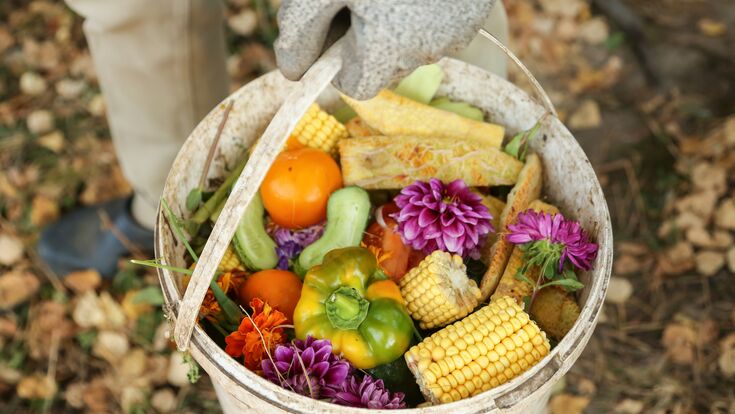Organic Waste : From policy to practice: LIFE BIOBEST PROJECT provides expert knowledge and tools to enhance bio-waste management in the EU

Having trailblazed the area of bio-waste policy on a global scale, the EU faces a crucial task: policy must be strengthened and fully put into practice with efficient management models.
EU directives such as the Waste Framework Directive and the Landfill Directive show the extent to which the opportunities and importance of proper bio-waste management have been recognised by European policymakers. In January 2025, the mandate in Article 22 of the former directive stipulating that all municipalities have a separate management for bio-waste completed its first year as a standing obligation. Bio-waste management is a cross-cutting topic with ramifications in many sectorial policies.
Yet, there are varying levels of implementation and generally low outcomes in terms of bio-waste capture and quality, especially for kitchen waste. According to a recent 2024 BIC & ZWE report, across the 27 Member States, only 26% of kitchen waste is currently collected separately (based on 2022 data). Bio-waste is crucial to complying with recycling targets for which, of the 27 EU Member States, only 7 fully accomplished the 2020 target. According to the 2nd Early Warning Report, a third of Member States are on track to meet 2025 recycling targets.
How to improve bio-waste management
LIFE BIOBEST, a European project focused on the improvement and implementation of bio-waste management, analysed the regulatory barriers that impact European institutions and stakeholders in a policy brief, highlighting the need for concerted action.
To catalyse this change, LIFE BIOBEST prepared numerous guides, tools and recommendations for EU, national, regional and local authorities.
Among the main project resources are a set of four guidelines which focus on separate collection of bio-waste, governance & economic instruments, the production of quality compost & digestate and treatment processes, and factsheets on communication & engagement activities. These guidelines are accompanied by a proposal on quality standards for bio-waste entering recycling processes including a methodology for their control as well as a proposal for control values, and an assessment matrix for regional and local authorities to evaluate their unique context and identify the appropriate measures to improve their model.
The Comprehensive Guidance for the EU presents key policy recommendations to strengthen the EU legal framework for bio-waste management. Drawing from extensive research and stakeholder consultation, this document outlines three interconnected areas for improvement: boosting effective models for separate collection and recycling, promoting reliable markets for compost and digestate, and enhancing monitoring and enforcement of bio-waste regulations. The guidance provides concrete policy measures to help close the gap between current practices and potential capture rates and high-quality material. It proposes specific targets related to quantity and quality of the bio-waste captured, effective economic instruments and support, and monitoring requirements to support the EU’s transition towards more efficient bio-waste management and healthier soils.
Lead author of the guidance and implementation officer at Zero Waste Europe, Manon Jourdan, states, “We lack direction on bio-waste system performance. To get on track, the EU must introduce stronger reporting requirements, clear guidance for Member States and, most critically, legally binding targets on the quantity and control values on the quality of the bio-waste captured”.
Jean-Benoît Bel, senior project manager at ACR+, adds, “Local authorities play a key role in the practical implementation of the bio-waste separation obligation. Frontrunners showed that a combination of adequate collection schemes, incentives and proactive citizen engagement activities leads to high collection rates of high-quality bio-waste, also in more challenging contexts”.
Scientific officer at ECN, Steffen Walk, states, “Implementing unified monitoring methodologies to assess bio-waste management performance, such as quality control at the source of collection or at the treatment facilities gate or for the composition of residual waste, is crucial for effectively tracking progress”.
Marco Ricci, lead technical expert for the project at CIC, states, “When local authorities start to collect bio-waste, they must consider how compost and digestate return to the soil. From a circular economy perspective and to close the loop, quality is a prerequisite for the development of the market for organic waste recycling products”.
Ignasi Puig-Ventosa, co-founder of ENT Foundation, highlights, “Economic and fiscal instruments are key to realigning incentives and encourage authorities to institute or improve separate collection and treatment systems. Cost-effective and competitive bio-waste management must be achieved in relation to residual waste”.
By renewing commitment to proper bio-waste management and incorporating calls to action stated in the Comprehensive Guidance for the EU, the EU may truly pioneer bio-waste by effectively putting policy into practice.
The LIFE BIOBEST project, led by Fundació ENT (ENT) in partnership with Consorzio Italiano Compostatori (CIC), ACR+ (Association of Cities and Regions for sustainable Resource management), European Compost Network (ECN) and Zero Waste Europe (ZWE), is focused on providing tools and guidance to bridge the gap between policy and practice. LIFE BIOBEST is a 2.5-year (2023‒2025) LIFE Preparatory Project (projects addressing ad hoc Legislative and Policy Priorities) funded by the European Commission.



